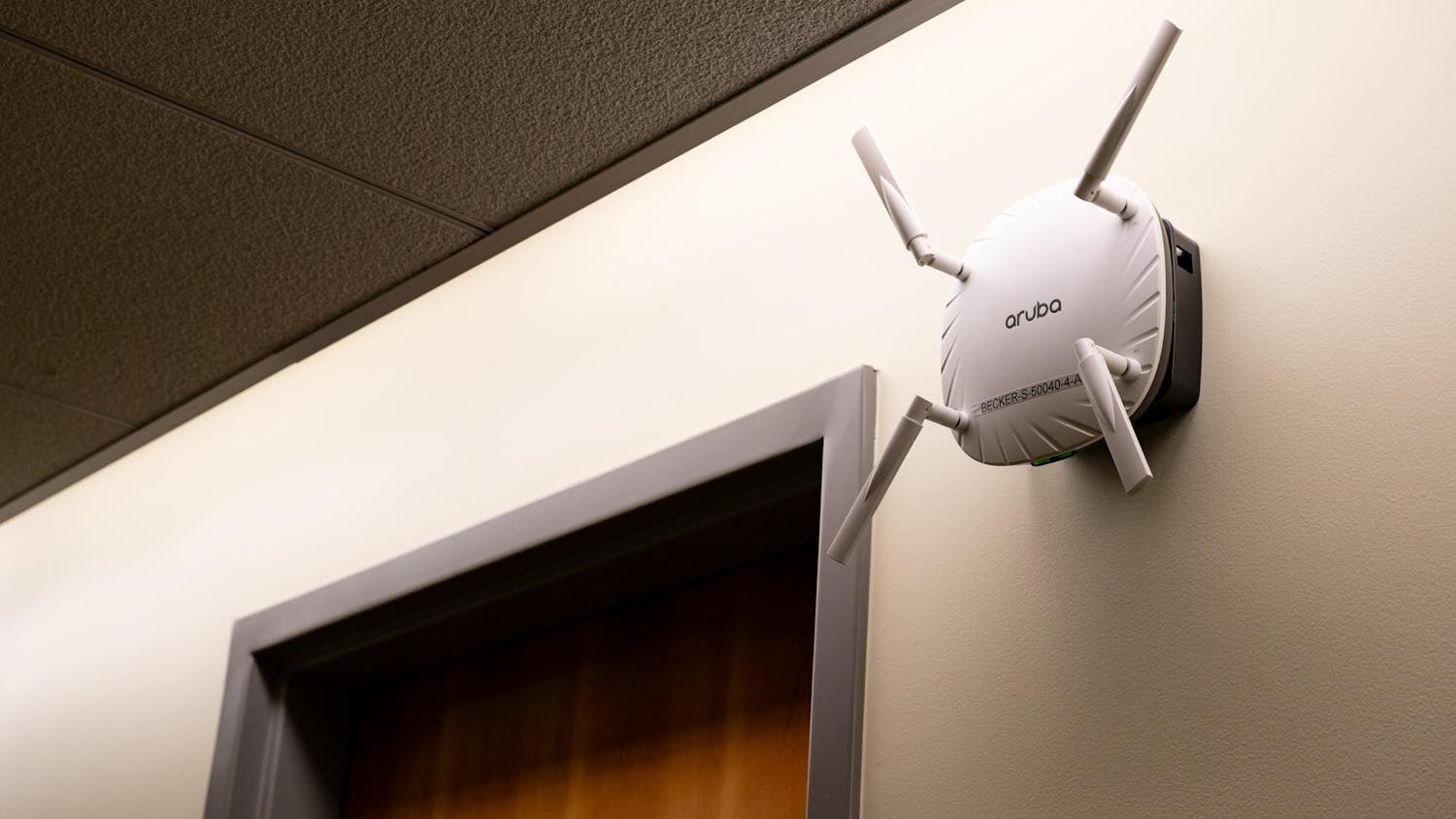The distinctly red, gray and navy blue-painted Tompkins Consolidated Area Transport buses that recently hit the streets of Ithaca are not originally from Ithaca at all. The Capital District Transportation Authority, a transit system based in Albany, donated five buses to TCAT to help alleviate its equipment shortage in November, and the buses came on the road in March.
The shortage was sparked by the unexpected early removal from service of seven electric buses in March 2024. Since then, TCAT has sent out older buses more frequently and some trips have been cancelled altogether due to a lack of buses.
A TCAT press release from April 2024 stated the battery-electric buses were removed from service after the frame of an electric bus separated from its axle while on a lift in the TCAT shops. After the incident, all electric buses were idled as a precaution, and have remained off the road since.
TCAT General Manager Matthew Rosenbloom-Jones described the donation as a step towards his number one goal: restoring a modicum of stability to an agency that has seen its fair share of difficulties in recent years. The agency narrowly averted a strike during contract negotiations in March, and funding for public transportation is threatened nationally.
“The biggest dream right now is to stabilize the service and get to where we were pre-COVID,” Rosenbloom-Jones said. His goal is to have “more buses on the road, reliable service, a more modern fleet [and] more reliable fleet.”
When the electric buses were introduced in 2021, they were a step toward TCAT’s goal of an all-electric fleet by 2035. Now, that goal has been delayed indefinitely, and the next new TCAT buses will be diesels.
Five new diesel buses are set to arrive in May, followed by six new electric and two new hybrid buses. TCAT chose to buy new diesels because they use more tested and reliable technology, and they’re faster and cheaper to acquire than electrics or hybrids.
Proterra, the company that manufactured TCAT’s original seven electric buses, filed for bankruptcy in August 2023, adding another roadblock to TCAT’s fleet electrification.
Rosenbloom-Jones noted concerns about the future availability of parts from a defunct company. Transit agencies across the country have also taken Proterra buses out of service since the bankruptcy and observed structural cracks in their bus frames.
“The biggest challenge with Proterra vehicles is the fact that they're trying to offset the heavy weight of the batteries with a balsa wood and fiberglass frame, and that's where we ran into all the problems with the vehicle,” Rosenbloom-Jones said.
The new diesel, electric and hybrid buses are being built in California by Gillig, a different and more established manufacturer. These buses are not expected to suffer from the same problems as Proterra’s.
Jaime Watson, CDTA’s director of corporate communications, said that cooperation among transportation agencies in New York is common.
“We’re happy to help our brother and sister properties across the state,” Watson said. “We have the luxury of being a larger transit property, so when we can do donations like this, we are happy that it works out.”
The donated buses will likely be in service for the next few years, and while they have received TCAT decals, Rosenbloom-Jones explained that it will be too costly to fully repaint the buses in TCAT colors.
Two of the buses donated from CDTA have the navy blue paint scheme of their standard city bus routes, and three have the red and grey paint scheme of their BusPlus Red Line, a rapid route between Schenectady and downtown Albany. All were built in 2010, making them the oldest buses in TCAT’s active fleet.
General Manager Plans Retrenchment
When asked about his long-term hopes and plans for TCAT, Rosenbloom-Jones emphasized increasing the reliability of existing service. He spoke about establishing “stable, high quality service” in the core market of Cornell and downtown Ithaca, followed by reversing COVID-era cuts to TCAT’s rural network, which extends across Tompkins County.
“In the past, the focus was on growth. For me, the focus is really on just stabilizing the system,” he said. “Growth is important, but I think we really need to focus on rebuilding everything that has suffered throughout COVID and some of the challenges we’ve faced the last few years.”
His long-term outlook also includes a new building for the TCAT offices, bus garage and shops, which are “overcrowded” and approaching 35 years without an update since their construction in 1992. The current facilities also lack the high-capacity electricity infrastructure necessary for a fully electric bus fleet.
Rosenbloom-Jones said he was not concerned about funding cuts from the federal government, because state operating assistance is “the biggest determinant” of the agency’s funding.
A renewed focus on stable, reliable service will endear Rosenbloom-Jones, entering his second year as general manager, to TCAT riders accustomed to cancelled trips and infrequent schedules. The five donated buses represent the first concrete step toward making his vision a reality.











